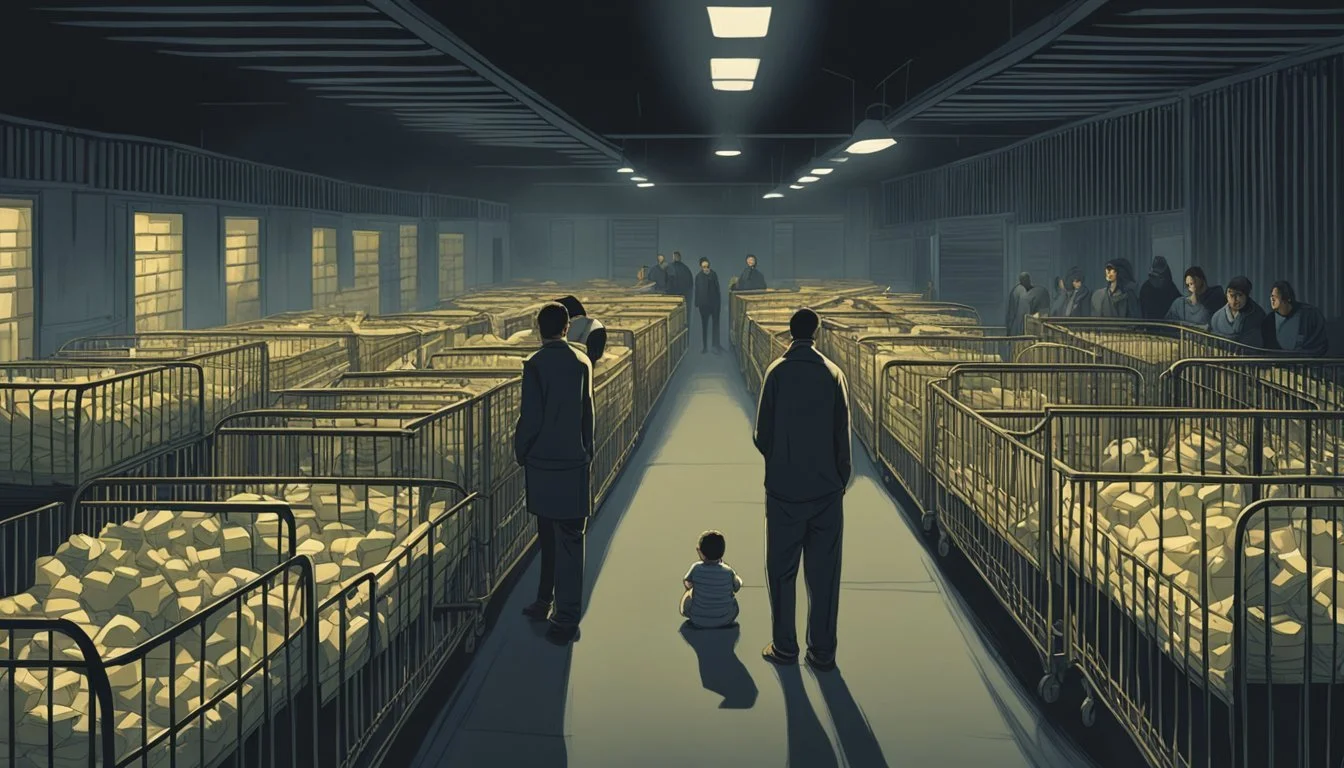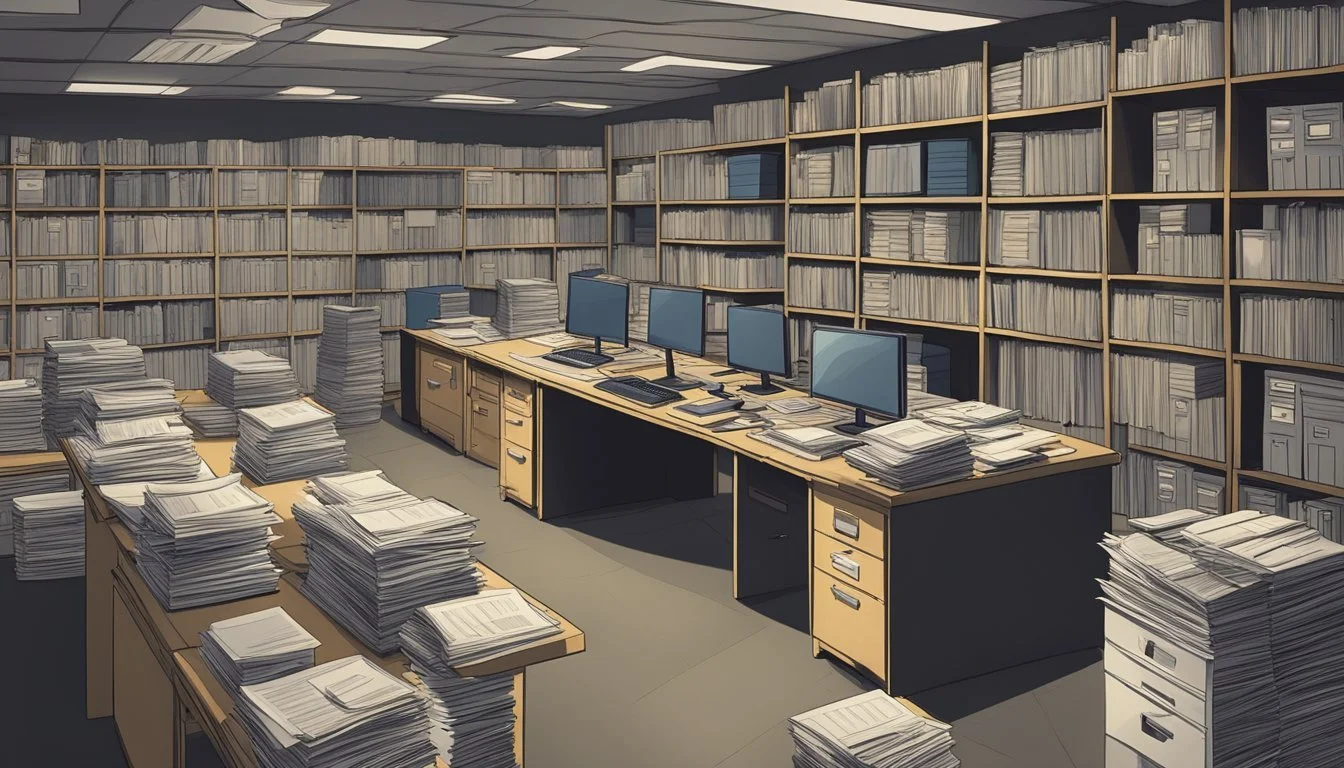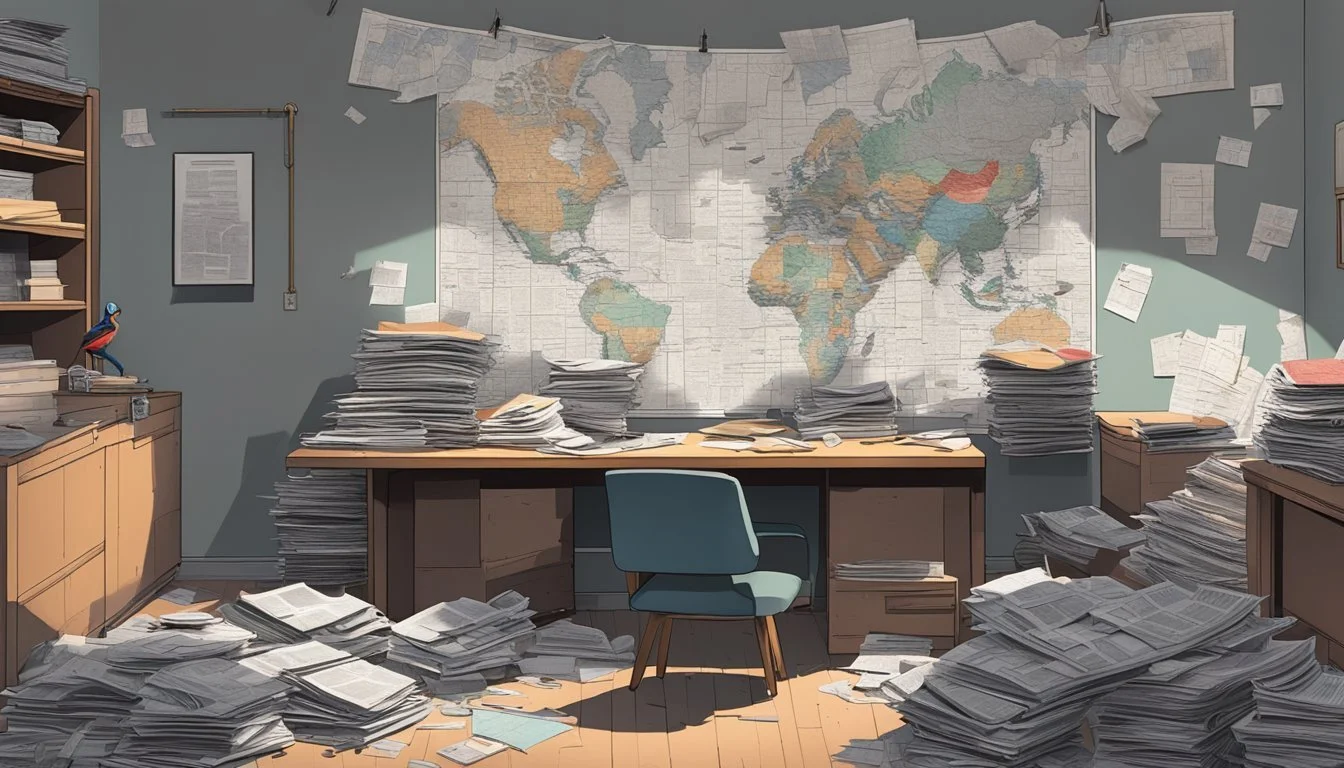7 Shocking Documentaries on Illegal Adoptions and Baby Trafficking
Exposing Global Child Exploitation Networks
Illegal adoptions and baby trafficking represent a dark underbelly of the global adoption system. These practices exploit vulnerable families and children, often leaving lifelong scars for those involved. Documentaries have played a crucial role in exposing these hidden crimes, shining a light on the complex networks that perpetrate them.
Several shocking documentaries have emerged in recent years, revealing the depth and breadth of adoption fraud and baby selling schemes across different countries. These films uncover stories of fabricated documents, coerced birth mothers, and children stolen from their families. Through interviews with victims, undercover investigations, and meticulous research, these documentaries provide viewers with a stark look at the human cost of these illegal practices.
1) Stolen Innocence: The Genene Jones Story
Genene Jones, a pediatric nurse in Texas during the 1980s, became infamous for her alleged involvement in the deaths of numerous infants. Her coworkers dubbed her shifts "the death shift" due to the alarming number of emergencies that occurred under her watch.
Jones was convicted in 1984 for the murder of a 15-month-old girl in Kerr County. However, investigators suspect she may have been responsible for many more deaths. Estimates suggest she could have administered fatal injections to between 40 and 60 babies in San Antonio alone.
In 2020, Jones pleaded guilty to an additional murder count, ensuring she would remain in prison. This plea came as she was potentially facing release under Texas's mandatory-release law, which could have freed her in 2018 after serving 34 years and 8 months.
The case of Genene Jones has been the subject of intense scrutiny and investigation. New information continues to surface, shedding light on the extent of her crimes. Her actions have left a lasting impact on the families of her victims and the medical community.
Jones' case serves as a chilling reminder of the vulnerability of patients and the importance of rigorous oversight in healthcare settings. It has prompted discussions about patient safety and the need for thorough background checks for medical professionals.
2) Tricked: Inside America's Secret World of Child Trafficking
"Tricked" is a 2013 documentary that sheds light on human trafficking in the United States. Directed by John-Keith Wasson and Jane Wells, the film offers a stark look at the sex trafficking industry.
The documentary presents perspectives from multiple angles, including victims, pimps, and clients. It highlights how traffickers often target vulnerable youth, particularly those with histories of abuse or homelessness.
"Tricked" exposes the growing and increasingly violent nature of the sex trade in America. It reveals the complex web of exploitation that traps many young people in this illegal industry.
The film aims to raise awareness about the prevalence of human trafficking within the United States. It challenges viewers to confront the reality of this issue in their own communities.
By featuring firsthand accounts, "Tricked" provides a powerful and sobering look at the impact of sex trafficking on individuals and society. The documentary serves as a call to action against this form of modern-day slavery.
3) Paper Orphans: The Story of Guatemala's Lost Children
"Paper Orphans" sheds light on Guatemala's dark history of illegal adoptions. From the 1960s to 2008, thousands of Guatemalan children were taken from their families and adopted internationally.
The documentary explores how over 40,000 children were sent abroad during this period, with nearly 30,000 going to the United States alone. In 2007, a staggering 1 in 100 Guatemalan-born children were adopted overseas.
The film reveals the privatized adoption industry that flourished in Guatemala, facilitating the separation of children from their birth families. It examines the complex network of "baby brokers" who profited from these transactions.
Many adoptive parents were unaware of the fraudulent practices behind these adoptions. The documentary follows adult adoptees as they uncover the painful truth about their origins and search for their birth families.
"Paper Orphans" also highlights the efforts to reunite families and seek justice for those affected by illegal adoptions. It raises important questions about international adoption practices and the long-lasting impact on individuals and communities.
4) Finding Home: A Documentary on Adoption Scams
Finding Home is a documentary directed by Derek Hammeke that sheds light on adoption scams and human trafficking. The film focuses on the stories of three young Cambodian women who were victims of sex trafficking at a young age.
Narrated by Stephanie Freed, founder of an anti-trafficking organization, the documentary provides a raw and emotional look into the dark world of illegal adoptions and child exploitation. It exposes the vulnerabilities that lead to children being trafficked and sold.
The film explores the complex factors contributing to adoption scams, including poverty, lack of education, and corrupt systems. It highlights how traffickers exploit these conditions to separate children from their families.
Finding Home also examines the long-lasting impact of these illegal practices on the victims. The three women featured in the documentary share their experiences, revealing the trauma and challenges they faced.
The documentary serves as a powerful tool for raising awareness about adoption-related crimes and human trafficking. It calls attention to the need for stricter regulations and better protection for vulnerable children and families.
5) Chasing the Truth: Exposing Baby Brokers
"Chasing the Truth: Exposing Baby Brokers" is a hard-hitting documentary that uncovers the dark world of illegal adoptions and baby trafficking. The film follows investigative journalists as they delve into a complex network of brokers who profit from selling infants.
The documentary reveals how vulnerable mothers are often coerced or tricked into giving up their babies. It exposes the tactics used by unscrupulous middlemen who exploit both birth parents and adoptive families.
Viewers are taken on a journey across multiple countries, witnessing firsthand the global scale of this illicit trade. The filmmakers interview former brokers, law enforcement officials, and families affected by illegal adoptions.
One of the most shocking aspects revealed is the involvement of seemingly reputable adoption agencies in these unethical practices. The documentary highlights the need for stricter regulations and oversight in the adoption industry.
Through its powerful storytelling, "Chasing the Truth" sheds light on a rarely discussed issue. It raises important questions about the commodification of children and the long-lasting impact on all parties involved in these illegal adoptions.
6) The Child Exchange: Trafficking in Plain Sight
"The Child Exchange" exposes a disturbing underground network of adoptive parents who rehome unwanted children through internet forums. This practice occurs largely outside the purview of child welfare authorities.
Parents use social media and message boards to advertise children they no longer wish to care for. These online marketplaces facilitate quick transfers of custody with minimal oversight or vetting of new caregivers.
The documentary reveals how easily children can be passed between strangers, putting them at risk of abuse and exploitation. It highlights cases where rehomed children ended up in dangerous situations.
Reporters uncovered hundreds of ads for children and tracked outcomes of some rehoming cases. Their investigation found a lack of laws specifically addressing this practice in many states.
The film raises important questions about adoption regulations and support for struggling adoptive families. It sheds light on a hidden form of child trafficking happening in plain sight on the internet.
7) The Baby Business: A Stark Exploration
"The Baby Business" documentary exposes the dark underbelly of international adoption and baby trafficking. It sheds light on the exploitation and fraud that can occur when demand for adoptable infants outpaces ethical supply.
The film examines how some U.S. families seeking to adopt from abroad unknowingly fuel illegal practices. It reveals cases where desperate parents are coerced or tricked into giving up their children.
Interviews with experts, advocates, and affected families provide firsthand accounts of the issue. The documentary explores the complex web of intermediaries involved in facilitating these adoptions.
It also highlights the lack of oversight and regulation in certain countries, which allows illicit practices to thrive. The film raises important questions about the ethics of international adoption and the need for reform.
"The Baby Business" serves as a cautionary tale, urging prospective adoptive parents to be vigilant and well-informed. It emphasizes the importance of ensuring adoptions are carried out legally and ethically.
Historical Context of Illegal Adoptions
Illegal adoptions have a long and complex history, rooted in societal changes, economic factors, and evolving legal frameworks. This practice has impacted countless families across the globe.
Origins and Evolution
Illegal adoptions gained prominence in the mid-20th century. In 1954, a lawyer in Montreal was implicated in an underground market for infants. This incident highlighted the growing issue of black market babies. Religious matching and lax anti-trafficking laws contributed to the problem's expansion.
The 1970s and 1980s saw a surge in illegal adoptions, particularly during authoritarian regimes. In Chile, the Pinochet dictatorship oversaw numerous unlawful adoptions. These children became known as the "Children of Silence."
Sri Lanka experienced a similar phenomenon between the 1960s and 1980s. "Baby farms" sold infants to European parents, with the Netherlands receiving many of these adoptees.
Key Legal Milestones
International efforts to combat illegal adoptions began in the late 20th century. The 1993 Hague Adoption Convention aimed to protect children and prevent abduction, sale, or trafficking in relation to intercountry adoption.
Many countries have since implemented stricter regulations. Guatemala, once a hub for international adoptions, halted the practice in 2008 due to widespread fraud and trafficking concerns.
Recent years have seen increased focus on adoptee rights. Some countries now allow adult adoptees to access their original birth records and search for their biological families. This shift reflects growing awareness of the long-term impacts of illegal adoptions on individuals and societies.
Impact on Adoption Policies
Documentaries exposing illegal adoptions and baby trafficking have led to significant changes in adoption policies worldwide. These changes aim to protect children's rights and prevent unethical practices in intercountry adoptions.
Changes in International Law
The Hague Convention on Intercountry Adoption, implemented in 1995, established international standards to safeguard children's best interests. This treaty requires countries to verify a child's orphan status and exhaust domestic adoption options before allowing international placement.
Many nations have tightened their adoption laws in response to documented abuses. For example, Guatemala suspended international adoptions in 2007 after widespread fraud was uncovered. Ethiopia closed its doors to foreign adoptions in 2018 due to concerns about child trafficking.
Some countries now mandate longer waiting periods and stricter background checks for prospective adoptive parents. These measures aim to ensure children are placed in safe, loving homes.
Role of Advocacy Groups
Adoption advocacy organizations have played a crucial role in pushing for policy reforms. Groups like the Joint Council on International Children's Services lobby governments to implement stricter regulations and oversight.
These organizations often:
Provide education and resources to adoptive families
Advocate for ethical adoption practices
Support birth families and adoptees
Collaborate with policymakers to draft legislation
Many advocacy groups now focus on family preservation and in-country solutions as alternatives to international adoption. This shift reflects a growing awareness of the importance of maintaining cultural connections for children.
Some organizations have also established post-adoption support services to help families navigate challenges and address issues related to identity and attachment.







